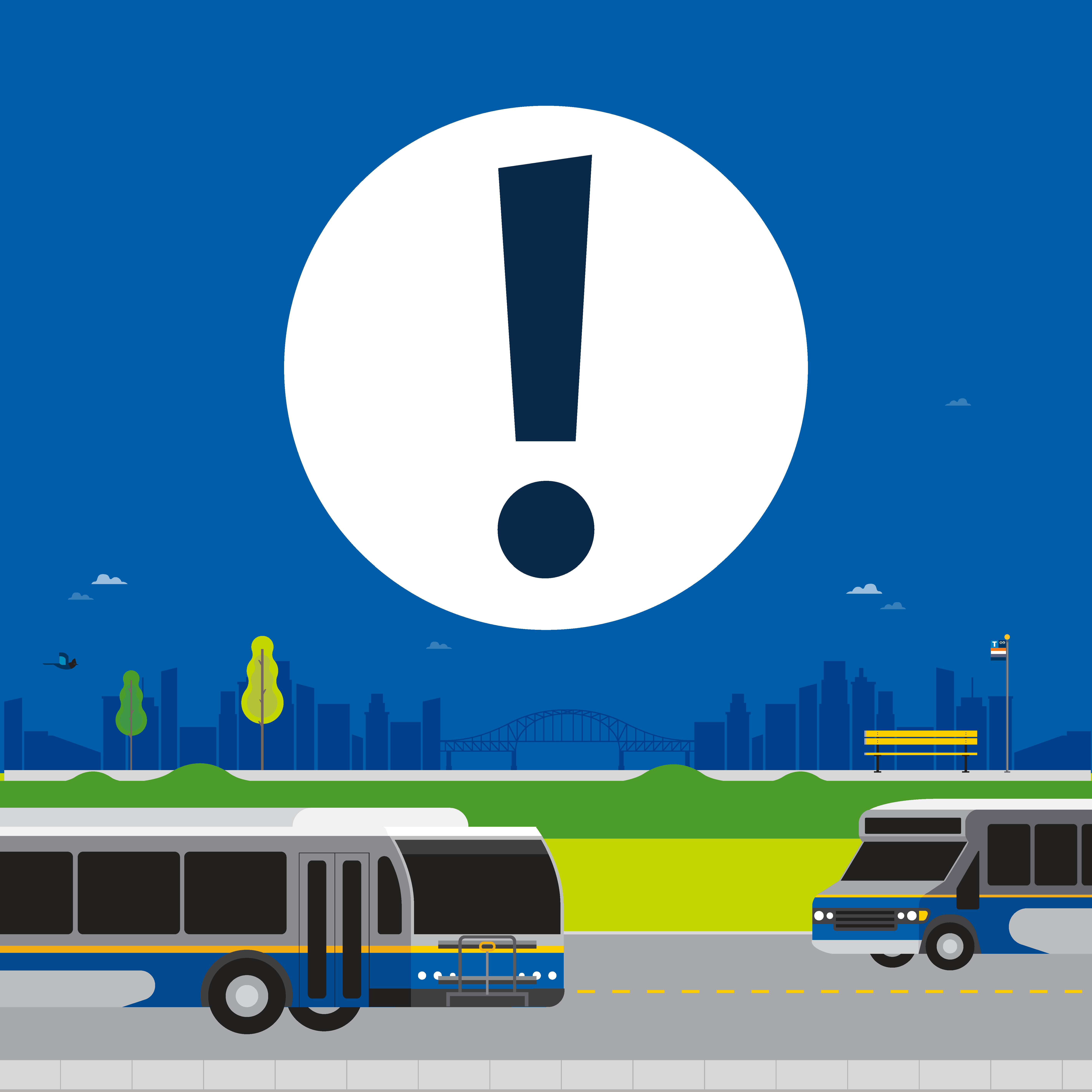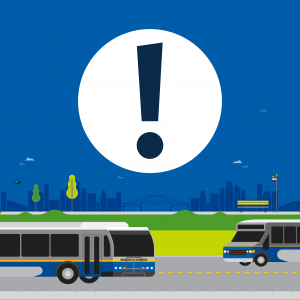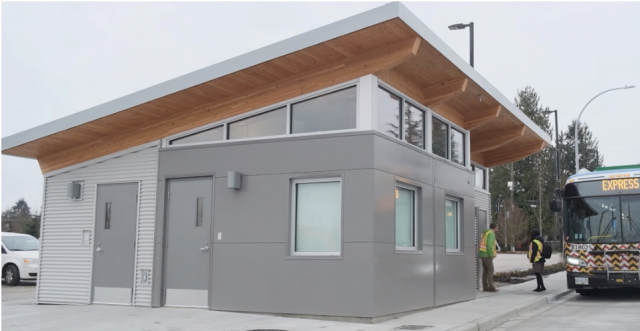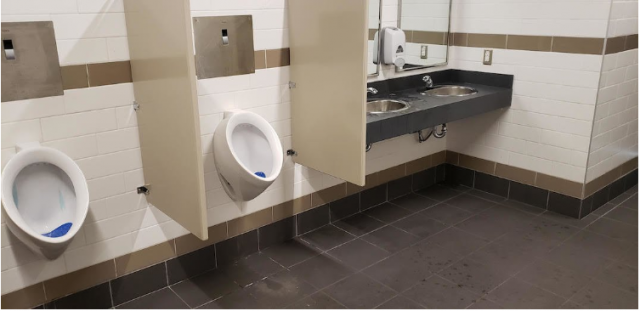8 things you need to know about the Metro Vancouver Transit Strike
8 things you need to know about the Metro Vancouver Transit Strike

We’re beyond pleased to share that Coast Mountain Bus Company, and Unifor Locals 111 and 2200 have reached a tentative agreement! We’re working towards providing regular schedules for all transit modes.
 If you’re a resident, a visitor, or just have a stake in what’s going on in Metro Vancouver, you’ve likely noticed that a transit strike is underway. As avid transit users ourselves and lovers of the system, we want to address some of the chatter about the job action and provide some context.
If you’re a resident, a visitor, or just have a stake in what’s going on in Metro Vancouver, you’ve likely noticed that a transit strike is underway. As avid transit users ourselves and lovers of the system, we want to address some of the chatter about the job action and provide some context.
When you use a TransLink service such as bus, SeaBus, SkyTrain, West Coast Express or HandyDART, you’re riding with one of our operating companies or contractors.
TransLink plans and funds the service, while these companies deliver this service to our customers – all 500,000 of you each day – across Canada’s largest transit service area at more than 1,800 square kilometres.
Notably, Coast Mountain Bus Company (CMBC) operates the SeaBus and most bus service in the region, while British Columbia Rapid Transit Company (BCRTC) runs the SkyTrain’s Expo and Millennium Lines.
CMBC and BCRTC are currently in negotiations for new collective bargaining agreements with their respective unions. Think of it as a shared commitment on wages, benefits and working conditions.
TransLink understands and recognizes the crucial role transit plays in the lives of Metro Vancouver residents, tourists and visitors. That’s why CMBC and BCRTC are committed to reaching a fair and reasonable agreement with the unions.
Currently, talks have broken off between Coast Mountain Bus Company, and Unifor 111 and 2200. The union’s job action is regrettably resulting in service disruptions for our shared customers.
There’s been a lot of information shared over the last few weeks, and we want to set the record straight and provide answers to some common questions about ongoing job action.
A full bus strike
Any loss of service is unacceptable, and we are urging the union to come back to the bargaining table to finish the deal. In the meantime, TransLink will do everything possible to communicate service disruptions to our customers.
To help keep our customers moving during escalated job action, we will have information and resources on alternative travel methods such as carsharing and bike parkade facilities available on our website.
Operator breaks
Currently, bus operators have non-scheduled breaks incorporated into their scheduled shifts, however, CMBC recognizes that road congestion and overcrowding are slowly eroding recovery time and often bus operators opt to forego their breaks in order to try to keep the bus on schedule.
That said, today, 99 per cent of operators whose shift lasts 7.5 hours or longer receive 30 minutes of recovery time which they use to take a break – 93% of operators scheduled to work 7.5 hours or more received 45 minutes of actual recovery that day – 78% of operators scheduled to work 7.5 hours or more received 1 hour of actual recovery that day.
CMBC is offering guaranteed overtime. Under the latest collective bargaining offer given by CMBC, transit operators would be guaranteed at least 40 minutes of recovery time for every scheduled shift. Under regular road conditions, transit operators would be paid double time for any minute of recovery time they don’t receive under 40 minutes. CMBC is also adding more scheduled recovery time to ensure operators are getting a rest.
With respect to break room facilities, we recognize that much of our region has aging infrastructure, and as part of the 10-Year Vision and TransLink’s Maintenance and Repair Program, we’re upgrading and providing improved operator layover facilities throughout Metro Vancouver.
Washroom breaks
Bus operators are encouraged to use washrooms as needed during their scheduled shifts. The latest bargaining proposal also clarifies that operators are permitted to use a washroom whenever necessary.
CMBC has a washroom committee where once a month, one bus operator and one supervisor from each bus depot visits each and every washroom in their service area. During these visits, they assess the cleanliness and functionality and report back to CMBC. Any identified issues are immediately addressed by CMBC’s Facilities Maintenance department or Transit Supervisors.
 Recently opened bus operator layover facility at Guildford Exchange
Recently opened bus operator layover facility at Guildford Exchange UBC Exchange operator layover facility
UBC Exchange operator layover facilityWages
CMBC’s enhanced proposal is more generous than other public sector settlements in British Columbia. The current offer gives bus operators a maximum salary of $69,900 annually after four years and builds on the improvements for working conditions and wages in previous CMBC proposals.
CMBC also recognizes its compensation for skilled trades has not been competitive. This is why its proposal is offering a $10,000 annual pay increase after four years.
CMBC and TransLink must offer competitive salaries to attract qualified employees, whether they are front line workers, trades or executives. Nearly 10,000 operator applications have come in over the last two years. This shows operator wages are competitive.
Wages compared to other regions
CMBC is offering generous wage increases at the limit of what the region can afford. Parity with Toronto operators would require increases in fares, taxes or fees. CMBC is already offering a competitive wage for operators and its wage proposal will make the job even more attractive.
CMBC operator wages are the highest offered in the province and are higher than in several other Canadian cities.
Executive compensation
TransLink has had difficulty hiring executives in the transportation sector. This summer the TransLink board increased the salary bands for executives after thorough research into comparative salaries in Canada after an independent study found the compensation was not competitive in this specialized market.
Half-a-million people rely on TransLink’s services every day to get around the region. An efficient and effective transportation system is critical to the functioning of the region’s economy and our communities. It’s therefore crucial that we are able to recruit and retain experienced leaders that we need to oversee the planning and operation of a system that spans 23 communities, employs nearly 8,000 people and is responsible for billions of dollars worth of public transportation assets.
The TransLink Board believes the updated Compensation Plan is fair, aligned with other public organizations and is necessary for recruiting and retaining the leaders we need to keep the momentum going and continue to provide safe and reliable transportation for people in the Metro Vancouver region.
Labour
The term “unskilled labour” is a labour relations term referring to work which does not require previous training or education. This term has been used in the context of bus operators as there is no previous training or education required to apply other than a BC Driver’s License (5-passenger vehicle or higher) or Canadian equivalent. CMBC conducts and provides training to applicants on how to operate buses.
Overtime
All transit authorities rely on some overtime to operate the system in the most efficient way. It’s common and allows flexibility to enhance service when necessary. It is more fiscally efficient to offer overtime work to employees than have employees on standby with no work. For example, overtime may be required to cover sick leave or vacation CMBC’s average percentage of pay classified as overtime is between seven and eight per cent. Any overtime work for operators is voluntary. Bus operators sign up for their own shifts, some of them have built-in overtime. Bus operators can also volunteer for overtime to cover absences
For the most up-to-date information on the state of the system sign up for alerts and follow us on Twitter at @TransLink. For the latest media statements, check out translink.ca/jobaction. For alternative travel options during job action, please see our Stay Informed page.
What’s running on Nov 27, 28, 29th?
SkyTrain – Regular schedule for all three lines (Expo, Millennium and Canada Line)
West Coast Express – Regular schedule
HandyDART – Regular schedule – Please note that due to job action, call wait times may be longer than normal.
Bus – Very limited service – Most service will not be running, but read our post for specifics
SeaBus – No service





